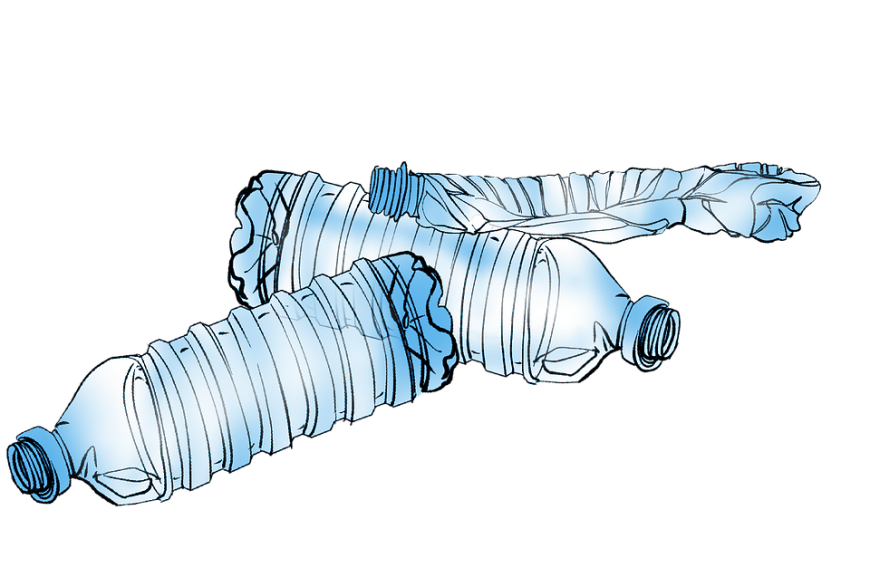
Plastic is a durable material and can be very useful in day to day life but since 1970 there has been a growing concern with plastic waste. Blocking drains, collections of floating litter, plastic found on the seafloor and the devastating effect it can have on marine life. In the last 18 years, countries have started to ban microbeads which can be found in cosmetics and plastic bags. Only in the past 5 years, researchers have decided it’s time to take immediate action after coming across serious cases of decomposed animal carcasses with high levels of plastic found within their stomachs and decided that more serious action was required. Currently estimated, at least 8 million pieces of plastic are entering the oceans every single day and by 2050, plastic in the oceans will outweigh fish.
 It’s becoming a major problem as plastic doesn’t just end up in the ocean or the ground we walk on but it has infested the highest mountains and polluted the air we breathe. Unfortunately not all plastic can be recycled and can take hundreds or even thousands of years to break down which leads to toxic chemicals being released into the soil and the air causing long-lasting damage. Most industries have a recycling process whether that’s using minimal materials where basic knowledge is needed. Others, such as the construction industry, have no choice but to deal with it on a day to day basis. Their focal point will be to separate waste to avoid having to pay landfill tax or high disposal costs. With a lack of information and knowledge this can be unavoidable.
It’s becoming a major problem as plastic doesn’t just end up in the ocean or the ground we walk on but it has infested the highest mountains and polluted the air we breathe. Unfortunately not all plastic can be recycled and can take hundreds or even thousands of years to break down which leads to toxic chemicals being released into the soil and the air causing long-lasting damage. Most industries have a recycling process whether that’s using minimal materials where basic knowledge is needed. Others, such as the construction industry, have no choice but to deal with it on a day to day basis. Their focal point will be to separate waste to avoid having to pay landfill tax or high disposal costs. With a lack of information and knowledge this can be unavoidable.
..
 One of many potential solutions to reduce plastic waste is producing plastic roads. Companies worldwide are launching projects to test it on roads, car parks and driveways. Some of them even provide international services to encourage others. It’s durable, cuts costs, creates more jobs and offers a solution. Tests have also shown that using plastic mixed with asphalt to be 60% stronger than the current standard asphalt, increasing road lifespan and reduces the chance of potholes. Research shows that replacing 10% of sand with plastic may help to reduce the vast amounts of waste but could help with the national sand shortage saving roughly 820 million tonnes a year. In the long run, companies providing services like this will help reduce carbon footprint, fossil fuels, the number of deceased animals will drop and many other factors.
One of many potential solutions to reduce plastic waste is producing plastic roads. Companies worldwide are launching projects to test it on roads, car parks and driveways. Some of them even provide international services to encourage others. It’s durable, cuts costs, creates more jobs and offers a solution. Tests have also shown that using plastic mixed with asphalt to be 60% stronger than the current standard asphalt, increasing road lifespan and reduces the chance of potholes. Research shows that replacing 10% of sand with plastic may help to reduce the vast amounts of waste but could help with the national sand shortage saving roughly 820 million tonnes a year. In the long run, companies providing services like this will help reduce carbon footprint, fossil fuels, the number of deceased animals will drop and many other factors.
It would make such a difference if more and more people got together and came up with innovative ideas to help get rid of the harmful debris. If you’re contractor passionate about our environment and recycling you could be getting involved to help increase the number of plastic roads around the world and help change the concept of plastic to a more practical material than it being used as a cheap alternative harming everything surrounding it.
